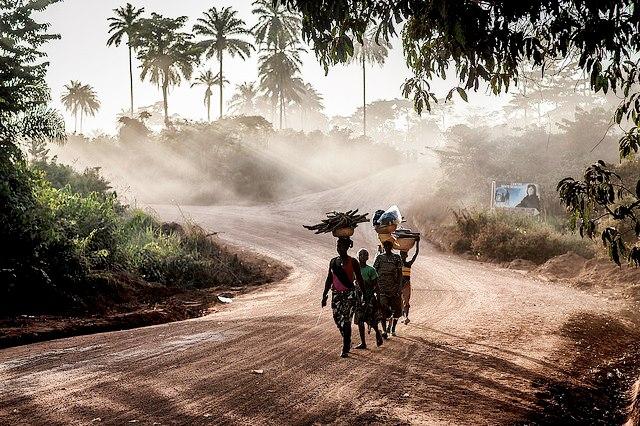The global Ebola response is facing a funding shortfall as officials race to get the outbreak curve heading downward again ahead of the impending rainy season, top officials said last week in a plea to donors at the United Nations (UN) General Assembly.
Speaking to reporters in Geneva after the meeting, Bruce Aylward, MD, MPH, World Health Organization (WHO) assistant director-general in charge of Ebola outbreak response, said funds to keep the response going are falling faster than disease levels, He added that stalled progress in getting cases to zero is one of the most worrisome aspects of outbreak.
Though the first 4 weeks of 2015 were encouraging, with an overall steep drop in cases across the region, the past 4 weeks saw progress flatten, with 120 to 150 new confirmed cases reported each week. "This is not what you want to see with Ebola," he said. With cases still being reported in the capitals of each of the three affected West African countries, Aylward called the situation "deeply concerning."
David Nabarro, MD, the UN's special Ebola representative, said the epidemiologic detective work involved in case finding and contact tracing requires many people, and though the UN is committed to working closely with the affected countries, more resources are needed to get the job done.
The need for the UN-led Ebola mission for 2015 is $1.5 billion, and so far the group has raised only $600 million, for a $900 million gap, he said, adding that without full funding, it's difficult to keep hundreds of staff in the region. "At the moment, we're worried," Nabarro said.
Aylward said the rainy season, which can start anytime from March to May, will make it difficult for responders to reach disease hot spots, but he added that people will still be on the move, and with them, the Ebola virus. "The virus gets a chance to get ahead of you," he said.
Liberia rolls back border closures, curfew
Meanwhile, in the outbreak region, Liberia's government yesterday reopened its borders with Sierra Leone and Guinea, according an update today from the UN Mission for Ebola Emergency Response (UNMEER). However, UNMEER said border security personnel in Sierra Leone hadn't yet received instructions from the central government on how to manage the border reopening and that officials from the UN will assess the situation at border crossings.
In another sign that life is starting to return to normal in the region, Liberia has lifted a nighttime curfew that it imposed to help curb disease spread in early August, Agence France-Presse (AFP) reported today. When first ordered, the curfew was from 9 pm to 6 am, but was eventually scaled back from midnight to 6 am.
The WHO said today that the number of confirmed, probable, and suspected Ebola infections in the three countries has risen to 23,539, with the number of deaths edging up to 9,541.
Today's totals reflect increases of 168 cases and 99 deaths since the WHO's previous update on Feb 20. The latest numbers include cases reported as of Feb 21 in Guinea and Liberia and Feb 17 in Sierra Leone.
Other developments
- An Australian healthcare worker who had possible low-risk Ebola exposure while working in Sierra Leone was brought to the United Kingdom on Feb 20 for evaluation and monitoring, according to a statement from Public Health England (PHE). It said the patient doesn't have any symptoms of Ebola and has not been diagnosed as having the disease but will initially be assessed in the hospital and will be followed up as needed for the remainder of the 21-day incubation period. The patient was brought to the UK on a private medivac flight.
- The US Department of Health and Human Services (HHS) on Feb 20 announced a new funding opportunity to help states and other entities boost regional health system preparedness for Ebola and to develop a regional Ebola treatment strategy. The effort, part of a larger preparedness plan, would award a total of $194.5 million. When combined with Ebola emergency funds that will soon be awarded through the Public Health Emergency Preparedness program, the total investment to help states, localities, and health systems prepare for Ebola will reach $339.5 million. HHS said that with the new funding it hopes to build on a tiered approach spelled out in its interim guidelines for US hospital preparedness for patients with suspected or confirmed Ebola infections. It will provide funding to all 50 states, Washington, DC, and select cities that have health systems that can serve as treatment centers for Ebola and other pathogens.
See also:
Feb 23 UN media briefing Webcast
Feb 23 UNMEER update
Feb 23 AFP story
Feb 20 PHE statement
Feb 20 HHS statement



















